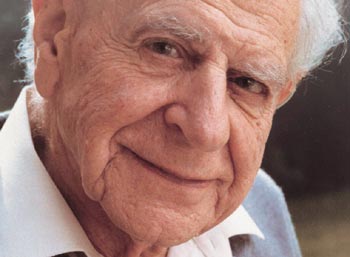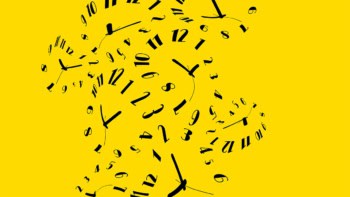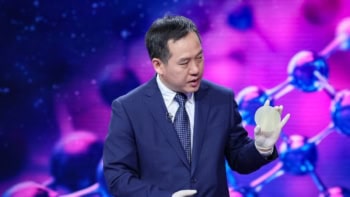Karl Popper's "principle of falsifiability" is one of the few philosophical ideas that physicists regularly mention. But science is far more complex than it suggests, says Robert P Crease

As a philosopher of science, I should honour my field’s heroes, especially those recognized by outsiders. I should, in particular, cherish those whose doctrines are understood and valued by scientists themselves. Thus, 2002 should have found me busy celebrating the centenary of the birth of Karl Popper. However, I was unenthusiastic.
Popper, who died in 1994, is hailed on one Web page as “the most important philosopher of science since Francis Bacon” (1561-1626). Cosmologist Frank Tipler has called Popper’s The Logic of Scientific Discovery “the most important book of its century”. Popper’s views strongly shaped the ideas of art historian Ernst Gombrich, and his ideas are cited in a landmark decision by the US Supreme Court, Daubert versus Dow Pharmaceutical, on the legal procedures for the admission of scientific expert testimony in court. Popper is also the only philosopher of science who is a household name among scientists.
Most can state the essentials of his chief teaching the “principle of falsifiability”. This is the idea that science progresses by “conjectures and refutations” and not (as Bacon suggested) through “inductive generalizations”, in which one generalizes on the basis of a sample. Popper, in other words, thought that a theory cannot be proved right, only wrong. A theory becomes scientific by exposing itself to the possibility of being proved incorrect.
This principle seems to solve at a stroke what philosophers of science call the problem of demarcation, or how to draw the line between science and non-science. “The criterion of the scientific status of a theory is its falsifiability, or refutability, or testability,” wrote Popper in Conjectures and Refutations in 1963. Einstein’s relativity theory, for example, is scientific, while astrology,
Marxism, psychoanalysis and new-age systems are not. The problem with such dogmas and ideologies, for Popperians, is not that they cannot be confirmed, but that they find confirmation everywhere. They are unscientific because they do not offer themselves up to potential refutation.
Popper’s principle is beloved by crusaders against junk- and pseudo-science, for it simplifies demarcation. But, however attractive Popper’s falsifiability principle might sound, it is not good philosophy of science.
Describing science neither in practice…
The history of science is replete with examples that show Popper’s principle to be wrong. Consider the scientific community’s response to an experiment that the physicist Dayton Miller conducted in 1925. Miller attempted to repeat Albert Michelson and Edward Morley’s famous experiment that showed that the speed of light is constant, regardless of the velocity of the source a result that lies at the foundation of Einstein’s theory of relativity. Miller, however, found a slight difference in speed. He reported this result to a meeting of the American Physical Society (APS), and interpreted it as a refutation of Einstein’s theory.
But was it? The APS’s members did not think so. Hundreds of other experiments agreed with Michelson and Morley’s work, and relativity was already tightly woven into contemporary science. Evidently, a gut feeling was telling the sceptical professionals that something was amiss with Miller’s results. Miller did find some champions. One was the Soviet academician A K Timiriazev, who was seeking to destroy Einstein’s influence among Soviet colleagues. William Broad and Nicholas Wade, meanwhile, have argued that scientists should have taken Miller’s apparent falsification more seriously. In their 1983 book Betrayers of the Truth: Fraud in Science, they looked at why the APS audience refused to consider Miller’s work as a refutation of Einstein. According to Broad and Wade, who are journalists, the physicists’ refusal was evidence of incompetence and unprofessional conduct. “[T]he audience”, they write, “should instantly have abandoned the theory or at least assigned it to provisional status.”
But to have suspended Einstein’s achievement because of a single contrary experiment would have been irrational and unscientific. It was the ideologues those with antiscientific axes to grind who were insisting that a theory should be tossed out because of a falsification. The principle of falsifiability can thus promote a damaging image of science. For even newspaper accounts of routine scientific work can turn up discrepancies between Popper’s picture and actual practice, implying that scientists are bunglers and frauds.
…nor in theory
Popper, I know, would say that we should pay close attention to claimed results, such as Miller’s, because they might be falsifications. And Popper knew that claimed falsifications are not necessarily real. The principle of falsifiability was not meant to be a description or a “recipe” for science. For him, the falsifiability criterion was not itself falsifiable. It is a methodological principle a philosophical test or model of what science would look like if reconstructed in logical terms.
But here, too, it fails. Theoretical “guesses” and experiments to test them are based on assumptions that we inherit from the entire past history of science. What shows up in the laboratory may not merely confirm or falsify the guesses, but rather call into question the background assumptions from which the guesses arise, forcing us to review and rethink the assumptions
In this extremely important interpretative process, a scientist must judge what is reliable and promising, and what is not. This is why great scientists are often people of strong purpose, whose very obtuseness and reluctance to be distracted by contrary empirical evidence in this interpretative process is a source of their success.
The critical point
Science is not a robotic process of conjecture and refutation. It involves the ability to call into question inherited assumptions that are elements of our background framework, thereby opening up possibilities that could not have been foreseen at the start. What we do in laboratories is both inquiry into nature and self-inquiry. Those efforts put our guesses about nature to the test and force us to reinterpret the assumptions on which these guesses are made.
It is tempting to seek a simple single principle with which we can grasp the essence of science and toss out all else. Unfortunately, science is too complicated for that.



